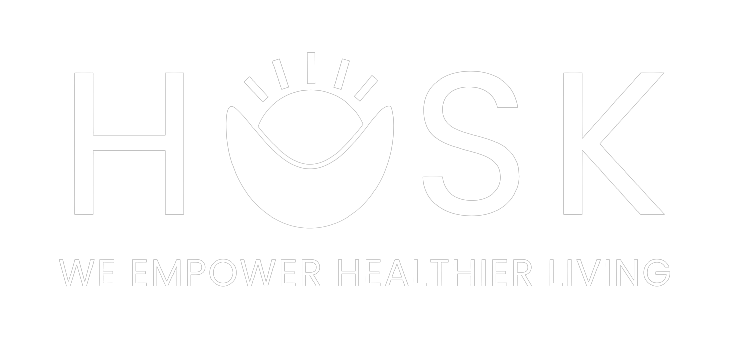
Lessons the Fitness Industry Can Teach You About Building Relationships
You don’t have to be a traditional gym-goer to understand. If you’ve ever browsed Instagram or Facebook, read any lifestyle magazines or blogs, or gone down a YouTube rabbit hole you’ve likely seen fitness advertisements making blanket claims like “Get Six-Pack Abs in 30 Days” or “Follow My 4-Week Program to a Leaner You!”
What you're up against
By dipping your toes even ever-so-slightly into the fitness pond, you’re bound to encounter a few certainties: overwhelming and contradictory information, bro-science, “influencers,” powders, pills and supplements, and transformation photos. At the end of the day, fitness is a business just like any other. And with any business, it can be difficult to determine who has your best interest at heart versus who wants to make a quick buck by preying on your desires.
The faux pas and the fix
There are lessons to be learned from these fitness fiascos, but they don’t only apply to fitness. In your own relationships, consider what drives your actions and motivations as you interact with others.
- Linearity– We see Personal Trainers and fitness influencers having a one-way “conversation” with clients and prospects. It’s easy to understand- with all of the education, experience, and expertise we all possess we want to impart that wisdom and provide our knowledge of best practices, essentially telling them “MY way is THE way.” The trouble comes when we are talking at someone and not having a discourse. There are plenty of ways to arrive at the same results- that’s why we have competition. If your goal is to make someone listen and trust you, it’s important to build a rapport. Relationships, whether in business or in our personal lives, are a mutual connection between people and should feel like it. To be able to explain to someone why you have the answer or solution they seek, we need to listen more than we talk. Which leads us to…
- Recognition– I know more about how my body operates than any new Trainer I meet will know; that is to say, I am the subject matter expert on me. Similarly, your counterpart is the expert in themself! They have come to you to help them solve a problem and want to know that you are an expert in your own field. Thinking this way helps to put ego aside and let someone else be in the driver’s seat for the moment. Active listening is a huge part of effective communication- when you are engaged in listening to someone’s story you are able to understand their needs, pain points, and form applicable questions that help you both. Collaboration leads to a sense of autonomy- using behavioral science like motivational interviewing with open-ended prompts to elicit meaningful discourse, body language awareness, and positive reinforcement, leads to coaching, rather than dictating, someone to arrive at a solution. You want to help someone own the process you’re guiding them through. There’s a sure way to practice the state of mind and conversation that gets us to this point…
- Strengths– Everyone, despite their industry, should be thought of as an expert. They may be a bit lost on how to accomplish something, but this doesn’t negate that they have their own strengths, are capable of change, do many things well already, and took the first step by engaging with you at all. All of these should be noted and celebrated. Your role is to lower their barrier to entry by playing upon those strengths. Do they already walk 3 miles each day? Great- they’ll start training with strong hamstrings. Do they already offer gym discounts to employees? Excellent- they have the baseline of a wellness program.. Do they already wash their face before bed every night? Perfect- they already practice basic skincare before coming into your dermatology practice. Just be cautious not to run into a common problem…
- Individuation– You’ve seen it all before. The person whose back rounds during deadlifts must not be engaging their core. The person who wakes up with headaches every morning must not be getting enough sleep. The employee who shows up 20 minutes late each day must be bad at time-management. This line of thinking sets everyone up for failure. When we lump people into categories we run the risk of creating cookie-cutter solutions instead of client-centric plans. Personalization is key in letting every person know that they are unique, valued, and important to you. While the problems may all be the same, the path to how everyone arrives at the solution should feel completely unique.
- Authenticity– Every industry is ripe with disingenuous people. Everyone has their own “brand,” pushing their “unique” take on how to succeed that no one else has done before and is guaranteed to work for everyone (see #4)! These internet influencers trust that your ignorance on a subject, their own successes despite proper education or adequate experience, and reaching mass audiences will lead them to the cash flow they seek- with little results for you. Being genuine takes time and effort, but the results are long lasting and the rewards are rich. By winning someone’s trust upfront you are building a long-term relationship that can fuel constant referrals. By being real you will surely experience some rejections- that’s a good thing. You aren’t trying to trick anyone; your brand may not be the solution for every single problem you’re approached with, and you wouldn’t want it to be. When you know what you do well and stay true to it, your target audience will keep coming back.
If you’ve never had these types of experiences with your counterparts, it may be time to revisit your process. In a world of 6-minute abs and brand ambassadors, be a thought leader.
Sources:
- https://www.acefitness.org/about-ace/our-efforts/blog/7450/ace-mover-method-every-exercise-professional-can-help-set-the-stage-for-healthy-behavior-change/?topicScope=thought-leadership
- https://thriveglobal.com/stories/5-things-you-should-do-to-become-a-thought-leader-in-your-industry-with-author-and-fitness-expert-nick-mitchell/
